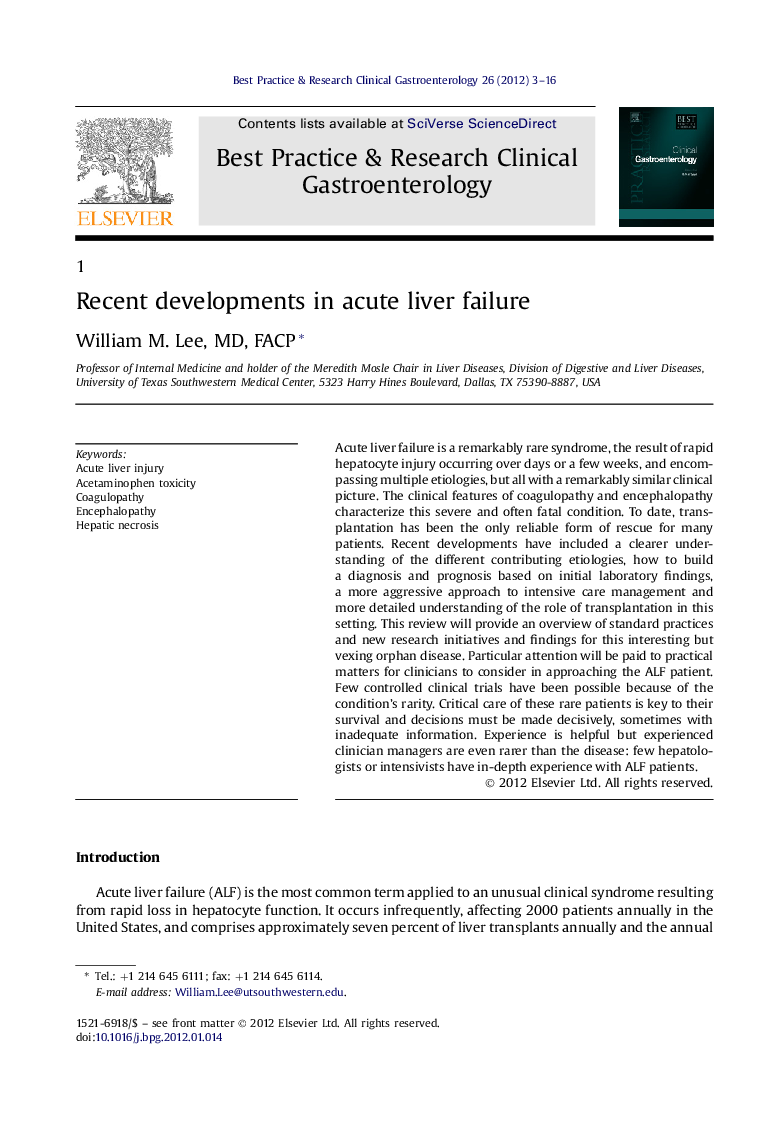| Article ID | Journal | Published Year | Pages | File Type |
|---|---|---|---|---|
| 6086491 | Best Practice & Research Clinical Gastroenterology | 2012 | 14 Pages |
Acute liver failure is a remarkably rare syndrome, the result of rapid hepatocyte injury occurring over days or a few weeks, and encompassing multiple etiologies, but all with a remarkably similar clinical picture. The clinical features of coagulopathy and encephalopathy characterize this severe and often fatal condition. To date, transplantation has been the only reliable form of rescue for many patients. Recent developments have included a clearer understanding of the different contributing etiologies, how to build a diagnosis and prognosis based on initial laboratory findings, a more aggressive approach to intensive care management and more detailed understanding of the role of transplantation in this setting. This review will provide an overview of standard practices and new research initiatives and findings for this interesting but vexing orphan disease. Particular attention will be paid to practical matters for clinicians to consider in approaching the ALF patient. Few controlled clinical trials have been possible because of the condition's rarity. Critical care of these rare patients is key to their survival and decisions must be made decisively, sometimes with inadequate information. Experience is helpful but experienced clinician managers are even rarer than the disease: few hepatologists or intensivists have in-depth experience with ALF patients.
